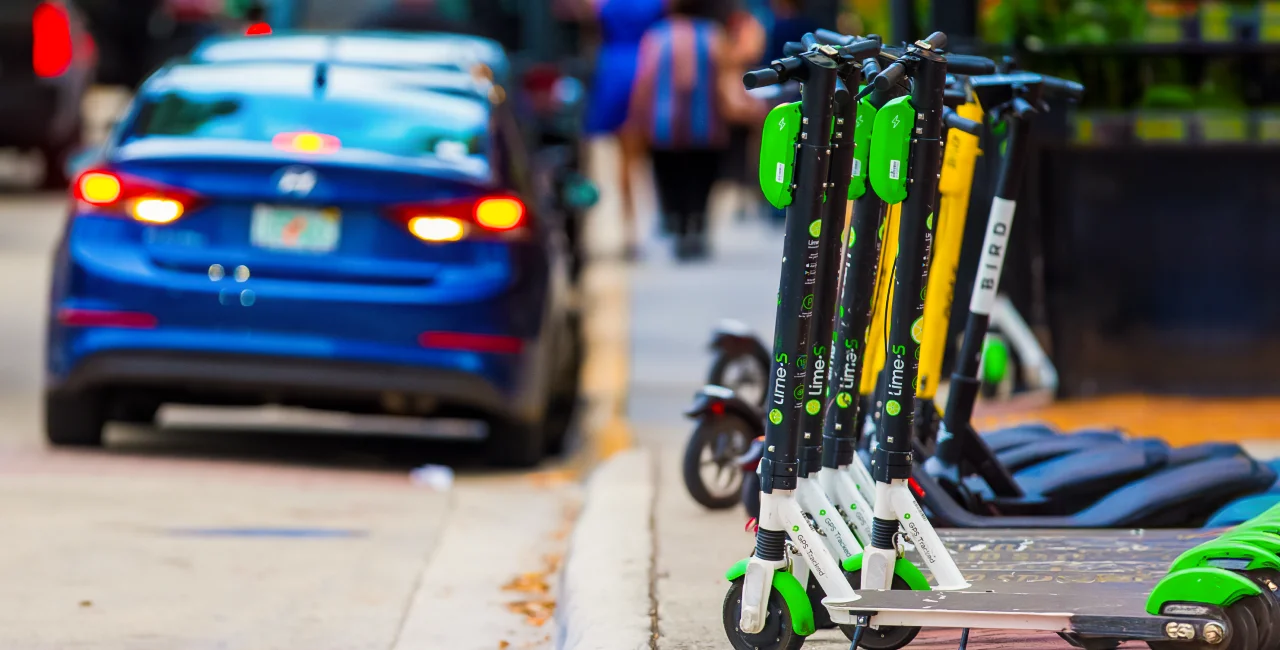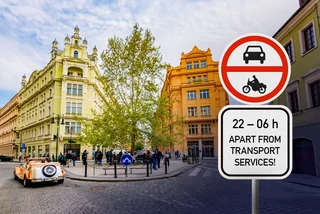In a bid to tackle excess noise and overtourism in the center of the Czech capital, Prague 1 Mayor Terezie Radoměřská has submitted a proposal that prohibits night-time entry for most vehicles to a large part of Prague’s Old Town – the City of Prague will vote on it soon. Prague councilors are also discussing restricting – and better regulating – the use of shared e-scooters in the capital.
No entry on major streets after 10 p.m.
Radoměřská says she wants to restrict entry to key, central streets such as Dlouhá, Králodvorská, Soukenická, Kozí, Pařížská, Břehová, Revoluční, which are home to tens of bars and nightclubs – often attracting rowdy locals and tourists alike. If the mayor's proposal is approved, the entry restriction will come into effect in August.
Prague 1 justifies the entry ban with residents' complaints about disturbing the peace at night, namely the honking of vehicles, revving, and normal traffic. "This is a Prague heritage reserve – not Disneyland," said Prague 1 councilor for transport Vojtěch Ryvola.
Residents, taxis, couriers, loading vans and lorries, and emergency services vehicles will be exempt from the entry ban. Tourists whose accommodation is based in the affected streets will also be unaffected by the ban and can drive through the entire Old Town at night.
However, relatives of families living in the affected area will not be able to visit between 10 p.m. and 6 a.m. According to Ryvola, the police will carry out frequent checks of cars, stopping them and verifying their journeys and motives for travel.
This is not the first time that local politicians have mentioned the ban. In fact – in a surprise and sudden move – Prague 1 created a similar no-go night zone for almost all motor vehicles in November 2023, complete with new road signs that forbade entry for motorists.
However, Prague Mayor Bohuslav Svoboda invalidated the decree a few days later, claiming he wanted to examine the proposed ban further and citing the need to discuss the issue with the entire municipality (rather than just Prague 1).
Councilors will vote on the proposed decree in the coming weeks; if passed soon, it may come into effect as early as June, though August is more likely (should it be approved).
Do you support a night entry ban for vehicles in parts of Old Town?
Putting the brakes on e-scooters
E-scooters have also been a contentious topic for Prague districts. In September, Prague 1 banned the parking of shared e-scooters on roads and open spaces. In a new development, the Prague Technical Administration of Communications (TSK) is liaising with shared e-scooter operators (such as Bolt or Lime) on increasing the fines for leaving e-scooters in inappropriate places or traveling with them on sidewalks (which is illegal).
"The goal is to establish a contractual relationship with scooter operators, to set strict rules for operating and parking uniformly for the entire city, and in particular to determine the penalty for violating these rules," says Deputy Mayor for Transport Zdeněk Hřib of the agreement.
In an interview with Prague local news site Metro.cz, TSK director Filip Hájek says that new fines would be in the amount of CZK 100 for riding outside the scooter’s designated area, and CZK 1,000 for parking vehicles poorly. Operators would collect fines directly from users.
Earlier this year, Prague 2 signed an agreement with Bolt to tighten up (essentially reduce) parking zones in the district, to prevent scooter clutter. In future, Prague 2 wants to establish “speed zones” in selected residential areas that would force users to slow down in certain points.
Hřib also says he would like to charge scooter operators for using Prague’s public space. In his words, a blanket ban on e-scooters – seen in Paris or Malta – is also on the table. Vyvola points out that establishing rules for e-scooters is inherently difficult because of their private ownership structure.












 Reading time: 3 minutes
Reading time: 3 minutes 






























